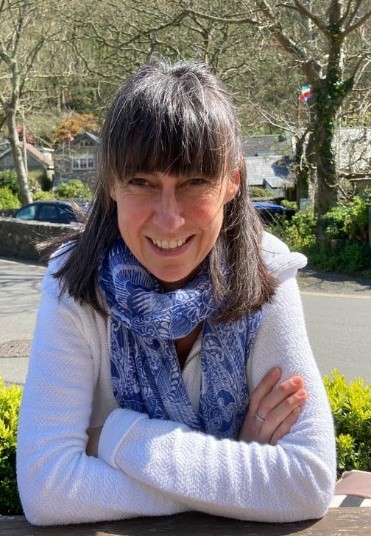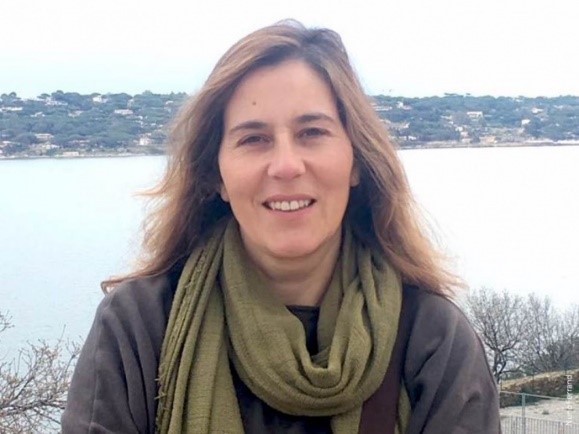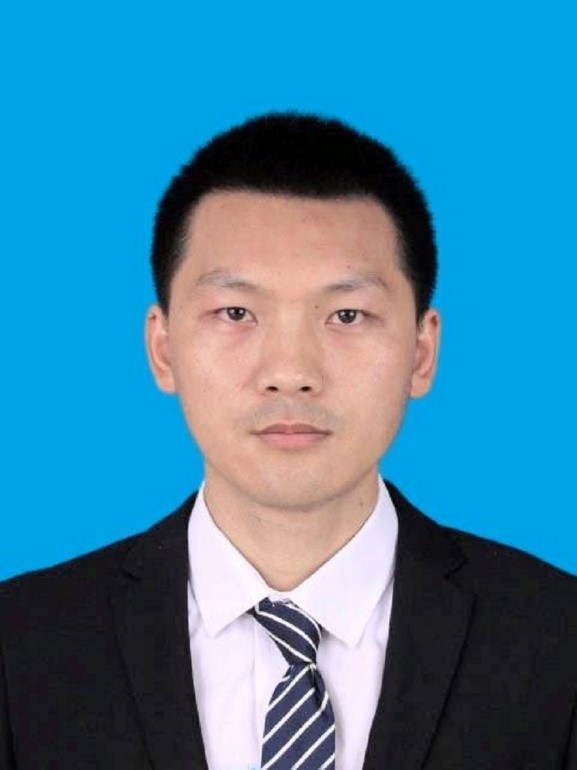Invited Workshop Speakers

Sofia Consuegra
Aquaculture Genetics and Genomics session
Epigenomic and microbiome signatures of early rearing conditions in aquaculture
Currently Professor of evolutionary ecology at Swansea University (Wales, UK). My work is primarily focused on conservation genetics, molecular ecology and resource management (fisheries and aquaculture), mainly but not exclusively, on aquatic organisms. Degree in Biology from the University of Oviedo (Spain) and six years as a Scientific Advisor for the Cantabrian Government before being awarded a PhD in Conservation Genetics from the University of Cantabria (Spain). I then did postdocs at the Institute of Zoology in London and the University of St Andrews before becoming a Lecturer at the University of Aberystwyth until 2013 when I moved to Swansea University.

Laurent Frantz
Companion Animal Genetics and Genomics Workshop
On the origin of our companion animals: A palaeogenomics perspective
Laurent Frantz obtained his PhD from Wageningen University in 2015 and conducted his postdoctoral research as a junior research fellow at Wolfson College, University of Oxford. He then moved to Queen Mary University of London where he is a Senior Lecturer in Molecular Genetics in 2017 was appointed as a Professor of Palaeogenomics at the Ludwig Maximilian University of Munich in 2020. He has been the recipient of multiple prestigious awards, including from the European Research Council (ERC). Laurent has extensive experience in ancient DNA, bioinformatics, evolutionary genomics, and the study of domestication. Over the past nine years he has published over 70 papers, including multiple high profile palaeogenomic studies reporting the first sequencing of ancient dog genomes, the first ancient pig genome, the first genome of an extinct dire wolf, and wrote influential reviews on the topic of animal paleogenomics. His research is often covered by the press including from outlets, such as the New York Times (e.g. in 2021, 2020, or 2019), National Geographic (2021), BBC Radio (2018, and 2021), the Atlantic (2018), Scientific American (2018) or Le Monde (2021 and 2018).

Raquel Godinho
Applied Genetics of Companion Animals Workshop
Using dog genomic resources in Museomics: An assessment of dog introgression into the Iberian wolf genome
I am a biologist trained in Evolutionary Genetics, heading the EcoGenomics research group at CIBIO, University of Porto (Portugal). I am also an invited professor at both the University of Porto and the University of Johannesburg (South Africa). My major work interest is in processes that drive genetic diversity in populations living at extreme settings, including highly human-modified landscapes, environmental extremes, and very small-size populations. I have been working with different wild species, mainly mammals but not exclusively, with a particular focus on canids. My team has a strong interest in understanding the impact of hybridization between grey wolves and domestic dogs, and its potential evolutionary and conservation consequences. I have led international research projects aiming at wolf-dog hybridization assessment, genomic screening of adaptive dog genes into wolf genome, and development of genomic tools applicable to assess hybridization and mitigate conflicts associated with human-wildlife coexistence, generating applied knowledge to inform management and conservation actions. I author > 100 papers in international scientific journals, resulting from my work with a team of students, postdoctoral researchers, and collaborators, aiming at producing evidence-based understanding and visibility for processes shaping the genetic diversity of wild species.

Sergey Koren
Domestic Animal Sequencing and Annotation Workshop
The human genome is finally complete, now what?
Dr. Koren is an associate investigator in the Genome Informatics Section, Computational and Statistical Genomics Branch at the National Human Genome Research Institute. After completing his M.S., Dr. Koren joined the J. Craig Venter Institute (JCVI) as a bioinformatics engineer under the supervision of Dr. Granger Sutton. During his three years at JCVI, he contributed to the development of the Celera Assembler, which has been used to assemble both the Drosophila melanogaster and human genomes. In parallel, Dr. Koren worked under the supervision Dr. Mihai Pop at the University of Maryland, College Park, where he developed several tools for metagenome assembly and analysis. In 2010, Dr. Koren joined the National Biodefense Analysis and Countermeasures Center (NBACC) where he led genome assembly development and pioneered the use of single-molecule sequencing for the reconstruction of complete genomes. In 2015, Dr. Koren joined NHGRI as a founding member of the Genome Informatics Section. At NHGRI, Dr. Koren led the development of an approach which uses parental genomic information to identify sequences belonging to either the maternally or paternally inherited genome in the child to generate two complete sequences for a single individual. This approach is the current state of the art for accurately reconstructing a complete diploid genome. Most recently, Dr. Koren supervised a project to update the popular Canu assembler to optimally utilize newly available highly accurate (over 99% accurate) long reads. His research showed that, through several algorithms, data accuracy can be increased even further, essentially to perfection. These breakthroughs allowed the study of previously invisible human genomic regions, corrected errors in the current reference, and led to the first truly complete human genomic sequence. Dr. Koren’s work continues to build on this success so that complete and accurate genomes become routine.

Cheng Ma
Avian Genetics and Genomics Workshop
Chicken2K: A panel for global chicken genomic diversity and evolutionary inference
Dr. Ma recently completed his PhD in genetics from the University of Chinese Academy of Sciences in 2022 under the supervision of Professor Ya-Ping Zhang. Currently, he works as an Assistant Researcher at the Kunming Institute of Zoology, Chinese Academy of Sciences (CAS). Dr. Ma's research interests involve the processes of evolution and adaptation resulting from natural and artificial selection. He aims to utilize research methods, such as genomics, transcriptomics, epigenomics, genetics, and evolutionary biology, to explore the nature of biological evolution, study the genetic mechanisms of adaptation to diverse environments, and analyze the genetic basis of phenotypic diversity. As an exceptional young scientist, Dr. Ma played a pivotal role as one of the core members in the completion of the Global Domestic Chicken Genome Project (Chicken2K). Through his work and contributions, Dr. Ma is pushing the boundaries of chicken research, and aiming to uncover new insights into the origin and complex global expansion history of domestic chickens.

Matthew McClure
Equine Genetics and Thoroughbred Parentage Testing Workshop
Improving parentage verification, transiting from STR to SNP and beyond from a bovine perspective
Dr McClure has over two decades experience in animal genetics and genomics from the wet bench to data analytics with a wide range of genomic data: PCR, microsatellites, SNP chips, genotyping by sequencing, to whole genome sequences. The primary focus of his career has been developing novel uses for this genomic data and increasing the number of commercial animals genotyped. In 2012 he led the work to impute bovine parentage microsatellite alleles from high-density SNP data. Implementation of this work in Ireland and other locations has saved farmers the financial burden of dual genotyping animals as the cattle industry has moved from microsatellites to SNP for parentage verification. For the last decade, Dr. McClure has also been a member if the ICAR-DNA working group and helped develop international standards for parentage verification and the ICAR-554 parentage SNP panel for improved parentage validation and prediction across cattle breeds.
Other career highlights include helping discover the causative alleles for Jersey Haplotype 1, Weaver Syndrome, and Holstein Haplotype 3; developing a diagnostic test for Jersey Neurological and Splayed Legs; and developing >10 custom cattle commercial arrays. Dr. McClure currently works for ABS-Global as the Lead Geneticist for Dairy Product Development where his team develops novel trait evaluations and develops improved processes for dairy farmers wishing to genotype their commercial cows.

Jessica Petersen
Horse Genetics and Genomics
A resource for documenting and tracking genetic diversity in US thoroughbred horses
Jessica Petersen is an Associate Professor in the Department of Animal Science at the University of Nebraska-Lincoln. A large part of the work of her research team is focused on understanding genome function and how variation can lead to desirable and undesirable phenotypes in horses and cattle. Since 2016, Dr. Petersen has been part of the Functional Annotation of Animal Genomes (FAANG) project and most recently led a USDA-NIFA funded effort to annotate regulatory elements in the Thoroughbred stallion. With additional contributions from the equine research community, the FAANG team has successfully generated and made large data sets publicly available for use in equine or comparative studies of genome function. Dr. Petersen also is active in studies of population genetics with the goal of better managing and conserving horse breeds.

James Prendergast
Genetics of Immune Response and Disease Resistance Workshop
Uncovering the basis of natural tolerance to African cattle diseases using integrative omics
James completed his PhD in bioinformatics and statistical genetics in 2007 from the University of Edinburgh, and following positions at the European Bioinformatics Institute and University College Dublin returned to Edinburgh to work first at the MRC Human genetics unit before joining the Roslin in 2013. James's group is focused on understanding mammalian gene regulation, genome evolution and human and animal disease genetics.
